WESTERN CAPE NEWS - The most important strategy that will flatten the resurgence of Covid-19 is behavioural change of citizens, said Premier Alan Winde during his weekly digital conference this morning, Thursday 3 December.
Winde reiterated the Western Cape Government's message that holidaymakers can continue with their travel plans, but stressed that it will be with a mask, adhering to the five golden hygiene rules and avoiding the three Cs (crowded places, close contact and confined and enclosed spaces).
He said the government will be throwing everything at the hotspot "fires" over the next 30 days to make sure that the second wave of the pandemic is flattened, while the economy remains open.
The Level 1 restrictions are sufficient, but within this framework, they will be applying a risk-adjusted strategy that includes clamping down hard on people who do not adhere to them. The other two pillars of their strategy are to focus on the health system's capacity and promote behaviour change among citizens.
Winde said it is evident from the spread of the virus that numbers do matter, therefore the 250 people allowed indoors at events must be reduced. He urged people to rather go outdoors, drastically reduce numbers at gatherings, and make sure that it is close family that they meet with. "The power is in the citizens' hands. We all know what to do."
Consequences for not wearing a mask
Winde said he will request the President to take measures that will introduce consequences for people who refuse to wear masks. "We as government will play our part, but the most important is that citizens do their bit."
Healthcare workers 'drained'
Western Cape Health Minister Nomafrench Mbombo pointed out that people's irresponsible behaviour has caused the resurgence, which is now impacting the healthcare system and healthcare workers. "Healthcare workers are tired and physically and mentally drained. They have been working ever since the outbreak first started," she said.
She said the HIV/Aids programme that has been negatively affected during the first wave is also putting pressure on the system now. They furthermore expect interpersonal violence over the festive season and road accidents to also add to the pressure.
More admissions than in first wave
Head of Health Dr Keith Cloete said in the Garden Route there are now more Covid hospital admissions than in the first surge. Whereas occupancy in hospitals by Covid cases came down to between 3% and 4% at the lowest point after the first wave, it is now 15%.
The test positivity rate has also increased from 16% last week to over 20% now. The fatality figures are also approaching the levels of the first wave. Infections among healthcare workers reflect the infections in the areas where they live.
Last week there were 38 new infections among healthcare workers in one day. At the George Hospital, 26 are currently infected.
Garden Route: nearly 400 new cases in a day
Prof Mary-Ann Davies, director of the Centre for Infectious Disease, Epidemiology and Research (Cider), said the increase in active cases is now in all areas in the province, but the biggest number is still in the Garden Route with nearly 400 cases in a day over the last week. The percentage increase in cases over the last week in the district was 29%.
She said daily surveillance "huddles" are continuing where all the different role players meet and decide how they are going to respond. Antigen testing started in the district last week, enabling on-the-spot testing with results within an hour or two.
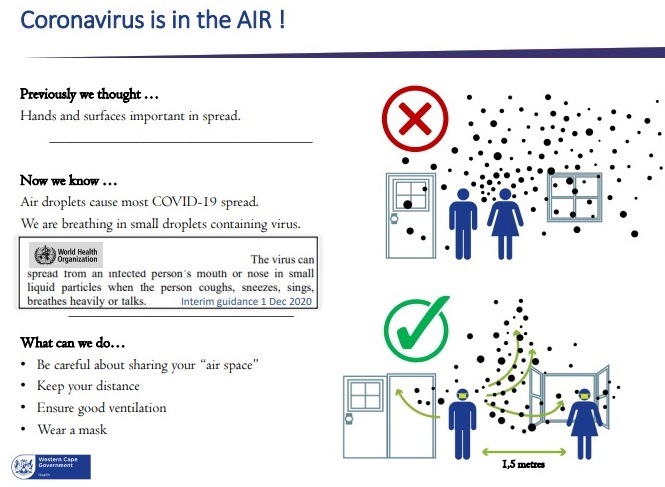
Virus airborne - 18 times more likely to spread indoors
Davies said whereas initially it was thought that spreading of the coronavirus was mainly through hands and surfaces, it is now known that Covid spreads mostly through air droplets from people that we are in close contact with. The World Health Organisation this week released updated guidance highlighting that most infections are acquired from breathing in small droplets that contain the virus.
"We must be careful whom we share our space with and always ensure good ventilation when indoors, and wear a mask,” said Davies.
“A study has shown that transmission of the virus is 18 times more likely in an indoor setting than outdoors. We have seen that social gatherings can contribute substantially to spread and have the risk of being superspreader events.
"Avoid gatherings, particularly while we have so many cases around. Meet people smartly and keep it small, go outdoors, and when at work, practise social distancing, ensure ventilation, wear a mask and practise respiratory hygiene."
Virus infectious in very early stages
Davies said they have furthermore learned that the virus spreads very early, with most infections occurring just before the start of symptoms and in the first two days after symptom onset. It was previously thought that it was contagious from two days before and up to 14 days after symptoms start.
She said people should immediately quarantine if they have had a close contact. Stay at home and have a test done. "Isolate while awaiting the results - including from other household members, especially those at risk of severe Covid-19. Complete your isolation if you test positive."
Everybody can spread the virus
According to Davies, they have also learned that it is not mostly infected adults who can spread the virus, as thought earlier.
"People of all ages can spread it, also children and teenagers with no symptoms. All ages need to work together in protecting our health system and those who are vulnerable."
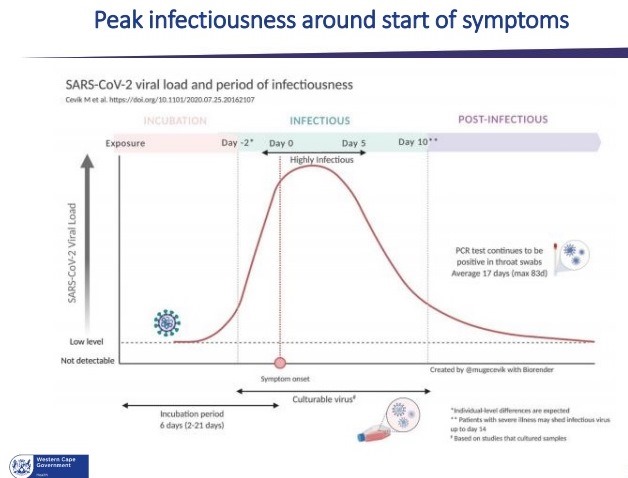
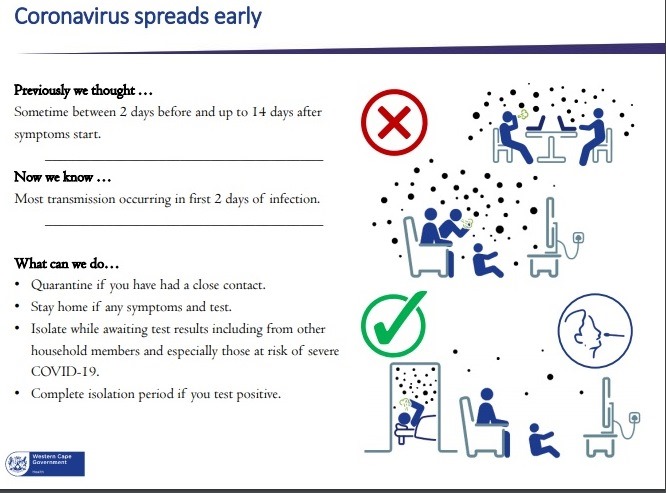
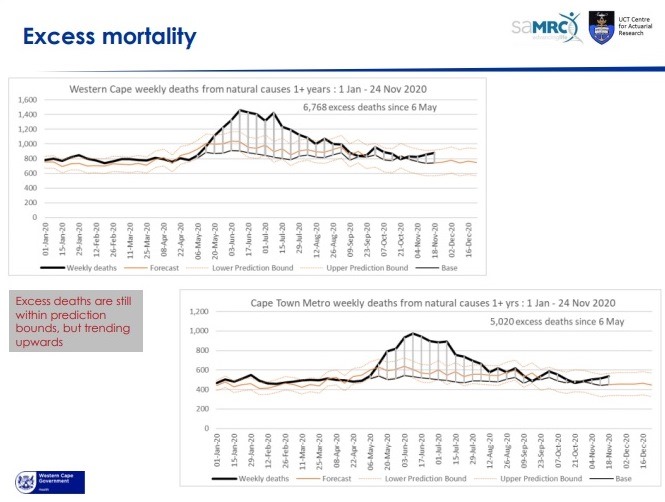
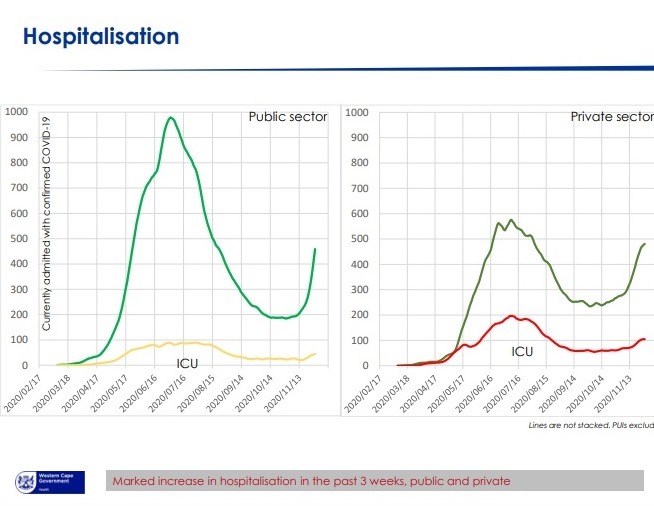
'We bring you the latest Garden Route, Hessequa, Karoo news'















